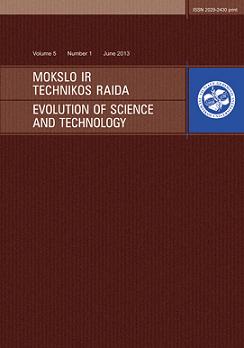„Žagrės“ kūrimosi aplinkybės ir pirmasis veiklos dešimtmetis (1906–1915)
Circumstances of „žagrė“ establishment and the first decade of the activity (1906–1915)
Author(s): Valdas PruskusSubject(s): History
Published by: Vilnius Gediminas Technical University
Keywords: society; ”Žiburys“; cooperation; priests; Christianity; education; economy; agriculture.
Summary/Abstract: At the beginning of the 20th century the Lithuanian Catholic intellectuals (J. Staugaitis, J. Vailokaitis and others) joined the cooperative movement. Cooperation was the instrument to ensure greater social security for individuals under the conditions of rapid capitalization. Moreover, they found the means to reduce the social tension in the society and to neutralize it. The Catholic intellectuals paid the greatest attention to the development of the cooperation in the countryside where the majority of the Lithuanian inhabitants lived at that time. Besides organizing the young farmers into the societies, cooperatives, educating, teaching and rendering the moral support, the Catholic intellectuals also enshrined the provisions of social solidarity and self-help, which were expressed in the activities of farmers’ society “Žagrė”, founded in 1906. The article analyses the circumstances of the establishment of “Žagrė” and the first decade of its activity. It shows that despite all failures and misfortunes, “Žagrė” trained people’s innovativeness, diligence, economic thinking and preconditioned development not only of economy but political democracy as well. The prospective players of both private and cooperative business enterprises also learned the principles of work in ”Žagrė“, but they disclosed their abilities only in interwar period (e.g. J. Vailokaitis in banking sector). The idea of ”Žagrė“ initiators to merge cultural and economic functions in business organizations sounds topical even at present.
Journal: Mokslo ir technikos raida
- Issue Year: 4/2012
- Issue No: 2
- Page Range: 102-111
- Page Count: 10
- Language: Lithuanian

